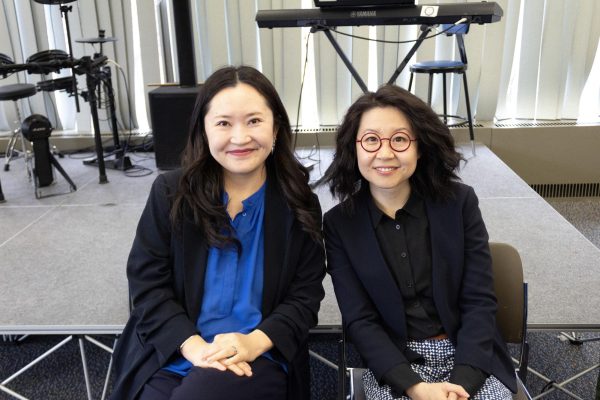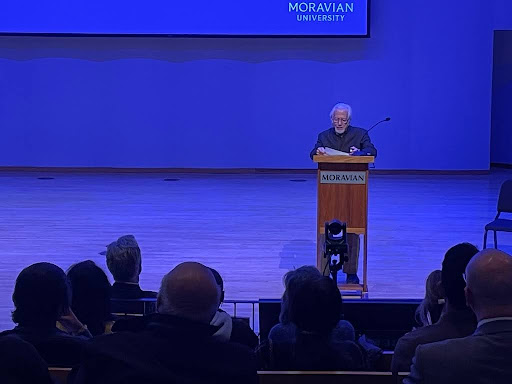AI, ChatGPT Offers Brainstorming Resources

Photos from NightCafe AI Generator.
As technology continues to advance, ChatGPT’s ability to generate human-like text has proven to be a powerful resource and brainstorming tool, unlocking new possibilities for individuals and businesses alike.
In this article, I will explore the positives of ChatGPT and how it is transforming the landscape of resource and brainstorming tools, sparking innovation and creativity in unprecedented ways. ChatGPT is paving the way for a new era of limitless possibilities, from content creation to idea generation.
Did you notice anything odd about the first two passages of this article? They were written by ChatGPT, following the prompt: “Write an introduction about the positives of ChatGPT, especially as a resource and brainstorming tool.”
ChatGPT has its downsides, as highlighted in AJ’s article, but it also has its benefits. I’ve recently started using ChatGPT both as a brainstorming tool, but also as a form of entertainment.
Have you ever asked a robot to write a poem–and then had the same robot write a scathing review about that same poem? Let me tell you: it is hilarious. I could be entertained for hours asking this little robot to write short, silly stories.
In addition, I just like to ask ChatGPT its opinion on controversial topics, often in the form of articles or poems. Sometimes I compare my poetry and essays to the work of ChatGPT and almost always feel relief, as it lacks a certain sense of humility.
Completely ignoring its entertainment uses, ChatGPT offers a valuable resource as a brainstorming tool when utilized correctly.
First of all, it can be used as a summarization tool, like a combined form of Spark Notes and Google, but easier to navigate. Of course, this information may not be 100% accurate, but it provides a good starting point. I’d compare this method to using Wikipedia–it definitely is not 100% correct, citable material, but it can point you in the right direction.
As an important sidebar, I do not condone copying assignments from ChatGPT whatsoever. However, as technology advances, students and faculty will need to work with this technology, not against it. AI will only continue to advance as people use it, and no matter how many people disagree with it morally or ethically, it will continue to improve.
ChatGPT can help brainstorm evidence for assignments, but I recommend just using it as a starting point and elaborating on one’s own analysis. Another important note: ChatGPT will often spit out incorrect information, so it’s often easier for faculty to notice when a student is incorrectly utilizing the resource.
One of my favorite parts about the resource is that it just saves time. When I don’t feel good in the morning, I don’t want to write a long email explaining why I can’t attend class. ChatGPT, however, can write an email explaining one’s absence, even including a subject and greetings. This is one of my favorite features, as I always edit the email to sound more like myself, but it ultimately saves time so I can get a few more moments of sleep. It can even help create captions for social media posts, saving a few moments of brainstorming if creating multiple posts daily.
Prime Video recently announced the launch of a new AI program designed to increase the volume of dialogue without increasing the general background noise and music from the film. This new speech enhancement is only one example of how AI can be ethically used to benefit humanity in small but convenient ways.
I cannot explain how long we have needed this feature, especially as college students. I don’t want to have to run to lower the volume because I don’t want to wake up my suitemates and then raise it to hear any of the dialogue happening. I may be a subtitles sympathist, but that’s for good reason.
In addition to these minor benefits, AI can offer a variety of medical benefits, including faster diagnostic abilities and greater accuracy. Medical Economics reported, “AI algorithms can analyze medical images, such as X-rays and MRI scans, to identify patterns and anomalies that a human provider might miss. This can lead to earlier and more accurate diagnoses, resulting in better patient outcomes.”
In addition to diagnostic advancements, AI can help underserved areas of healthcare receive more efficient treatment. Some AI services offering telemedicine services can allow patients to receive consultations without having to travel while also offering aid to overwhelmed and overworked medical professionals.
With these advancements, however, comes the risk of security breaches and unique AI attacks that could jeopardize personal healthcare history.
As a humanities major, especially in English, I initially feared AI, as ChatGPT is essentially gunning for my job. However, after playing with it for a while, it’s clear that AI can still not entirely replicate humanistic writing; there’s always a sense of roboticness. And, as of right now, it will blatantly supply incorrect information, making me feel a little more at ease.
However, please be aware of the information that ChatGPT provides, and always fact-check the information before utilizing the information for any source.
Another crucial point to note: don’t become dependent on technology to synthesize every piece of information for you. AI is a helpful resource if used correctly, but it can become detrimental if relied on.







Gavin B • May 2, 2023 at 12:26 pm
Dude when you said the first two paragraphs were Ai written I went liek this this ai stuff is so crazy but cool at the same time. Got me feeling like robocop